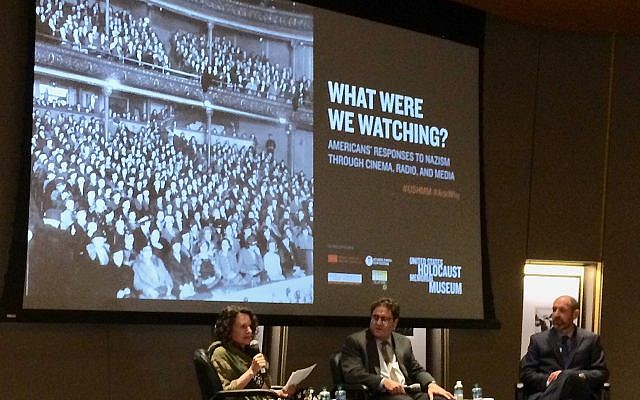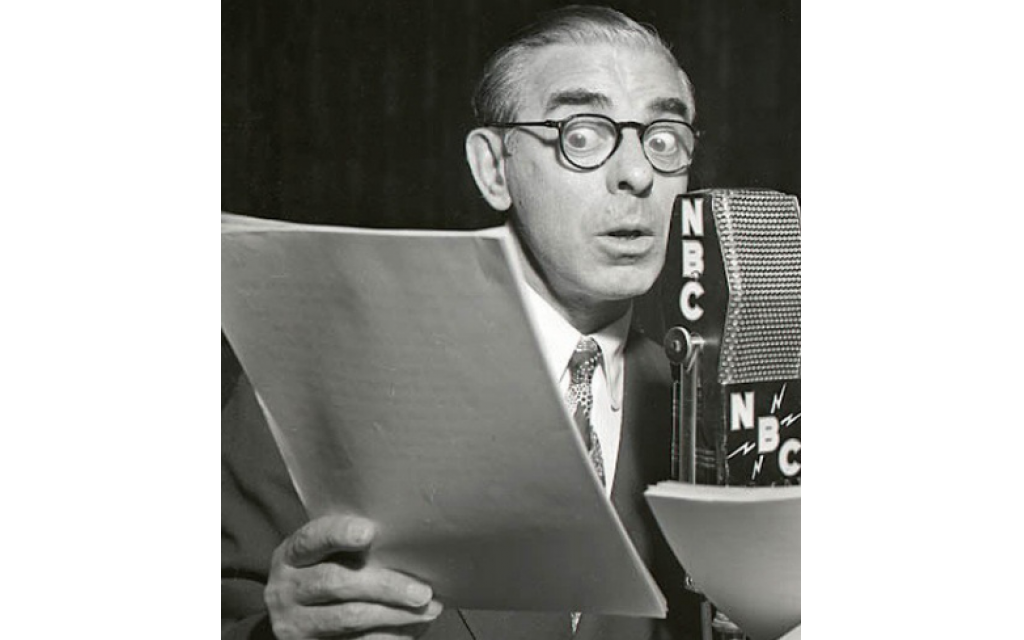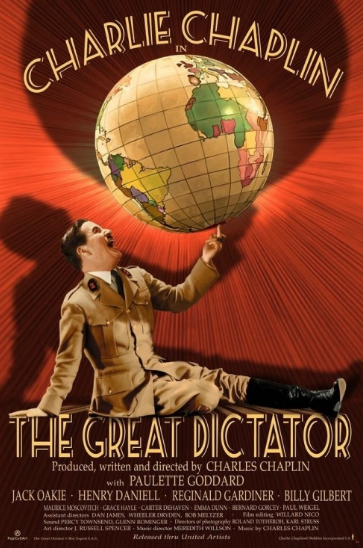Not Much Help from America For Jews Caught in the Holocaust
American public opinion before World War II was deeply divided about what to do about Nazi Germany, and even less interested in the fate of German Jews under the Nazi regime.

American public opinion before World War II was deeply divided about what to do about Nazi Germany, and even less interested in the fate of German Jews under the Nazi regime.
Those are two of the conclusions that emerge from recent examinations of the period, which were highlighted last week at a program in Atlanta, “What Were We Watching? American’s Responses through Cinema, Radio and Media.” It was presented at the National Center for Civil and Human Rights in downtown Atlanta by the United States Holocaust Memorial Museum.
The program featured Daniel Greene, a distinguished historian and curator of a major new exhibit at the Holocaust museum in Washington, “Americans and The Holocaust,” which opened last year. The exhibit details how many of the issues that America wrestled with in the Depression years of the 1930s shaped the response to the rise of Nazis. Issues such as how to cope with isolationism, racism and extremism on the left and right made it difficult for Americans to come to terms with anti-Semitism in America, much less what was happening in Europe.
Greene spoke about America’s response to Kristallnacht, the German attack on Jews in November of 1938. While Roosevelt condemned the attack and recalled America’s ambassador to Germany, he kept a firm lid on Jewish immigration to America, Greene said.
“There was no political will to liberalize the immigration system.”
In a 1939 poll, two-thirds of Americans were even against taking in any refugee children threatened with annihilation.

“It was Southern Democrats led by Sen. Robert Reynolds of North Carolina, who argued that American children had their own problems and we needed to take care of American children.”
Nor was there much interest in criticizing the racial policies of Germany. The major film studios in Hollywood, with the exception of Warner Brothers, avoided any direct criticism of Nazi Germany through the 1930s. Economic concerns about the possible loss of the lucrative German film market led many of the important Jewish producers and studio heads to avoid any direct criticism or even the use of the term, Nazi, in films of the period.
Americans could hear such famous American admirers of Adolf Hitler as Charles Lindbergh and Henry Ford blame the Jews for the world ills, but opposing voices were often muted.
Jewish American comedian and entertainer Eddie Cantor was an exception. In last week’s program in Atlanta, David Weinstein discussed his book “The Eddie Cantor Story: A Jewish Life in Performance and Politics.”
Cantor was an early and outspoken voice against the Nazi persecution of the Jews and was a frequent participant in philanthropic efforts to aid Jews in America and in Europe.

“Of all the major radio stars of the 1930s, he was the most outspoken both on and off the air, speaking about anti-Semitism, opposing Nazism at a time when it was very difficult to do that,” Weinstein said. “Really, in a number of areas, but especially for celebrities.”
Because of his fervid opposition to the Nazis, the sponsor of Cantor’s successful network radio program, Camel cigarettes, dropped him in 1939, which was a serious personal blow.
The event last week is part of a newly energized program by the Holocaust museum in Washington to cultivate new audiences and donors in the Southeast. The same presentation was seen in Miami in November.
A full-time regional office has been set up in South Florida to bring programs like the one last week to audiences here and elsewhere in this part of the country. Next month they are sponsoring a program at the Atlanta History Center and have hired a professional public relations firm to spread the word.
The event last week at the National Center for Civil and Human Rights was co-sponsored by the Atlanta Jewish Film Festival, the Georgia Commission On the Holocaust and Eternal Life-Hemshech.
Bob Bahr is teaching a six-week course at Temple Sinai and Congregation Or Hadash entitled “Anything For A Laugh – American Comedy and The American Jewish Soul” beginning June 4.
- Bob Bahr
- News
- Community
- United States Holocaust Memorial Museum
- National Center for Civil and Human Rights
- Eddie Cantor
- The Great Dictator
- Charlie Chaplin
- World War II
- holocaust
- What Were We Watching: American’s Responses through Cinema Radio and Media
- Arts
- Daniel Greene
- Americans and The Holocaust
- Kristallnacht
- Atlanta Jewish Film Festival
- Georgia Commission on the Holocaust
- Eternal Life Hemshech
- Atlanta History Center



comments